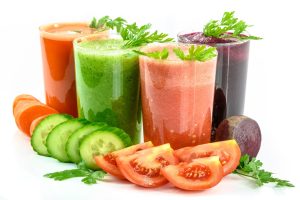 New research has revealed that Retinoic acid, a derivative of vitamin A that is found in eggs, milk and vegetables could hold the key to reverse lung damage caused by the disease Emphysema. Emphysema involves the gradual destruction of the small, air sacs (alveoli) located at the tip of the smallest air passages (bronchioles). Over time the walls of the air sacs are destroyed resulting in “holes” leaving fewer and larger air sacs, which diminish the gas exchanged in the lungs and decreases the amount of oxygen in the bloodstream. Emphysema is one of the most common respiratory diseases in Britain and causes progressive damage to the lungs, which can eventually kill and there is currently no cure. Symptoms include breathlessness but sufferers can be left gasping for breath and reliant on oxygen.
New research has revealed that Retinoic acid, a derivative of vitamin A that is found in eggs, milk and vegetables could hold the key to reverse lung damage caused by the disease Emphysema. Emphysema involves the gradual destruction of the small, air sacs (alveoli) located at the tip of the smallest air passages (bronchioles). Over time the walls of the air sacs are destroyed resulting in “holes” leaving fewer and larger air sacs, which diminish the gas exchanged in the lungs and decreases the amount of oxygen in the bloodstream. Emphysema is one of the most common respiratory diseases in Britain and causes progressive damage to the lungs, which can eventually kill and there is currently no cure. Symptoms include breathlessness but sufferers can be left gasping for breath and reliant on oxygen.
It usually affects older people and is generally the result of long-term damage to the lungs caused by smoking or exposure to other harmful substances.
Retinoic acid is already being used to treat acne but research on mice has found that it helps to repair damaged lung tissue by allowing the alveoli to grow back again until they reach normal levels and trials have already started on humans.
Just 12 days of daily injections of the compound ATRA enabled the mice to grow healthy new alveoi .
It appears that COPD sufferers may have a deficiency of Vitamin A and an increase of Vitamin A will aid in repairing the damage that the deficiency caused. Other research has shown that cigarette smoking (the leading cause of developing COPD) had a direct impact on lowering Vitamin A uptake in the body, caused by a common carcinogen found in cigarettes called benzopyren. It appears that a vitamin A deficiency may be the culprit behind emphysema and cigarettes could merely be the vehicle.
Beta-carotene is a pigment found in plants that helps produce the vivid colours of certain fruits and vegetables, such as cantaloupe and carrots. When ingested, beta- carotene is converted by the body into vitamin A (retinol), which can then be used by the body or it can simply act as an antioxidant scavenging free radicals, a reason why Vitamin A may also have anti-cancer properties.
Until the affects of this synthetic compound has been thoroughly tested, the best way to safely increase vitamin A/Beta-Carotene Levels is with your diet. Experts warn that large oral doses of synthetic stand-alone supplemental vitamin A can be dangerous, as it is a fat soluble vitamin and stored in the liver and large doses can damage the liver. The best way to ensure adequate levels of beta carotene or vitamin A is via your diet and not through pills. It has even been shown that if smokers, former-smokers or those exposed to asbestos take artificial beta-carotene supplements it can increase the lung cancer risk and affect the heart, therefore natural intake is a lot safer at the moment.
Here are the ten foods rich in levels of Beta-carotene. As Beta-carotene is a fat soluble vitamin, eating the following foods with a fat like olive oil or nuts can help absorption:
- Sweet potato
- Carrots
- Dark green leafy vegetables
- Cos
- Canteloupe Melon
- Butternut Squash
- Red peppers
- Broccoli
- Peas
- Dried Apricots
In addition vitamin A deficiency can make iron deficiency more severe, reducing even further the amount of oxygen being taken up by the body. Therefore increasing your vitamin A levels also increases your body’s ability to take up oxygen, vitally important for those suffering with a lung disease who may require supplemental oxygen to help ease their breathing and increase oxygen levels.
References: http://www.dailymail.co.uk and http://growfood-notlawns.com and http://www.healthaliciousness.com and http://www.livestrong.com




